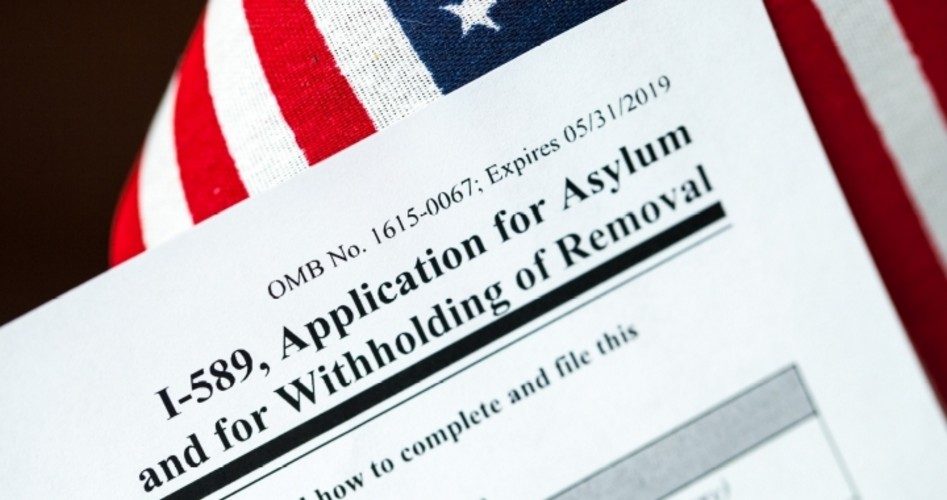
The U.S. Supreme Court handed the Trump administration another immigration victory yesterday.
By a 7-2 vote, the court upheld the federal statute that permits expedited removal for illegal aliens who claim asylum because they fear returning home.
Ruling in an appeal from a Sri Lankan illegal alien, the high court declared that the Illegal Immigration Reform and Immigrant Responsibility Act (IIRIRA) of 1996 does not trespass the Constitution’s due process and suspension of habeas corpus clauses.
Once immigration authorities find an asylum claim without merit, they can immediately deport the applicant.
Ninety percent of such claims are fraudulent, as The New American has reported.
Change His Story
As was this one.
As Associate Justice Samuel Alito wrote in the majority opinion, Vijayakumar Thuraissigiam, a Sri Lankan, jumped the southern border “without inspection or an entry document at around 11 p.m. one night in January 2017.”
A border agent stopped him within 25 yards of the frontier with Mexico and “detained him for expedited removal.”
The illegal Sri Lankan “claimed a fear of returning to Sri Lanka because a group of men had once abducted and severely beaten him, but he said that he did not know who the men were, why they had assaulted him, or whether Sri Lankan authorities would protect him in the future.”
And Thuraissigiam added one more fact that proved his asylum claim was bogus: “He also affirmed that he did not fear persecution based on his race, political opinions, or other protected characteristics.”
The asylum officer determined that Thuraissigiam did not fear persecution back home, and he “offered no evidence that could have made him eligible for asylum.”
After a judge signed the expulsion order, the illegal Sri Lankan “filed a habeas petition,” Alito wrote.
He also changed his story.
“Asserting for the first time a fear of persecution based on his Tamil ethnicity and political views, he argued that he ‘should have passed the credible fear stage,’” Alito wrote.
Immigration officials, he argued, deprived him of the chance to make his case.
Law Not Unconstitutional
Thuraissigiam’s lawsuit claimed the IIRIRA, passed to uncover bogus asylum claims, was unconstitutional because he was denied his rights of due process and habeas corpus.
In rejecting that claim, the court reversed a ruling from the Ninth Circuit Court of Appeals.
“Respondent’s Suspension Clause argument fails because it would extend the writ of habeas corpus far beyond its scope ‘when the Constitution was drafted and ratified,’” Alito wrote.
Habeas has traditionally been a means to secure release from unlawful detention, but respondent invokes the writ to achieve an entirely different end, namely, to obtain additional administrative review of his asylum claim and ultimately to obtain authorization to stay in this country.
Despite “considerable research” by Thuraissigiam’s attorney and amici, they failed to show “that the writ of habeas corpus was understood at the time of the adoption of the Constitution to permit a petitioner to claim the right to enter or remain in a country or to obtain administrative review potentially leading to that result. The writ simply provided a means of contesting the lawfulness of restraint and securing release.”
Not only did respondent fail to seek release, he does not dispute that confinement during the pendency of expedited asylum review, and even during the additional proceedings he seeks, is lawful. Nor could he. It is not disputed that he was apprehended in the very act of attempting to enter this country; that he is inadmissible because he lacks an entry document … and that, under these circumstances, his case qualifies for the expedited review process, including “[m]andatory detention” during his credible-fear review…. Moreover, simply releasing him would not provide the right to stay in the country that his petition ultimately seeks. Without a change in status, he would remain subject to arrest, detention, and removal.
The illegal Sri Lankan’s due-process argument also fails, the court ruled, because Congress determines an alien’s rights when he crosses the border.
“While aliens who have established connections in this country have due process rights in deportation proceedings,” Alito wrote, “the Court long ago held that Congress is entitled to set the conditions for an alien’s lawful entry into this country and that, as a result, an alien at the threshold of initial entry cannot claim any greater rights under the Due Process Clause.”
Thuraissigiam jumped the border, and therefore “has no entitlement to procedural rights other than those afforded by statute.”
That would include the law in question because “the decisions of executive or administrative officers, acting within powers expressly conferred by Congress, are due process of law” for “foreigners who have never been naturalized, nor acquired any domicile or residence within the United States, nor even been admitted into the country pursuant to law.”
As a practical matter, the Trump administration can continue deporting illegal aliens as soon as they are caught.
Image: Eblis/iStock/Getty Images Plus
R. Cort Kirkwood is a long-time contributor to The New American and a former newspaper editor.




